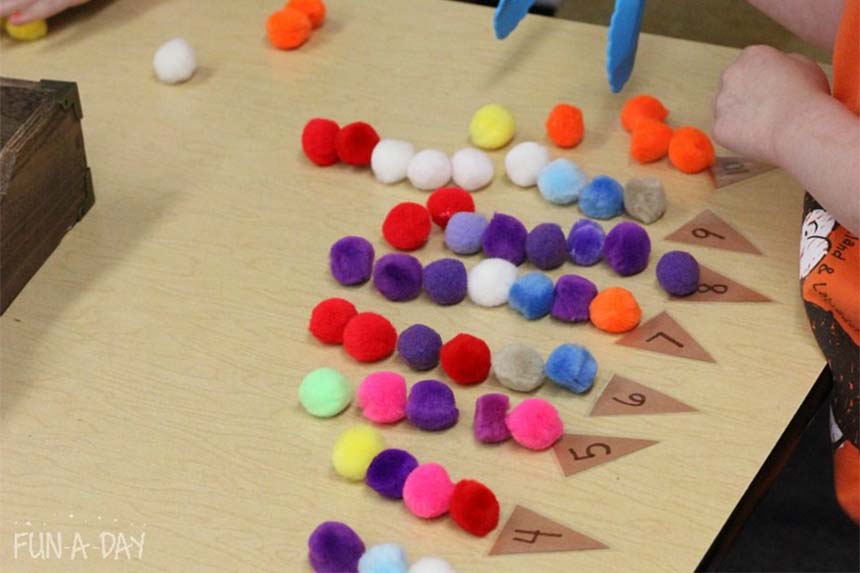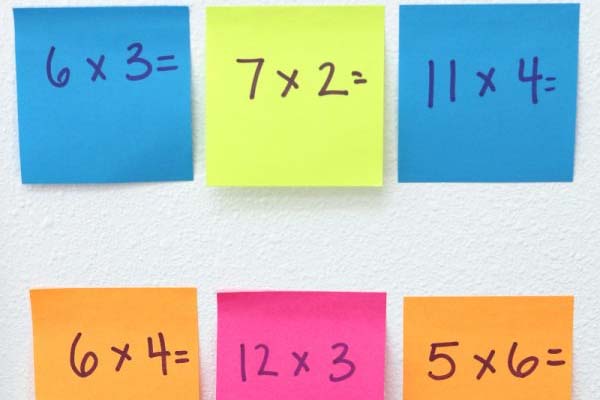13 Fun Summer Learning Activities For Kids Of Every Grade Level

The final school bell has rung and your child is looking forward to days full of fun and adventure. But just because school is out for summer doesn’t mean that learning should stop! Making sure your child is keeping his or her brain active during the summer months is important—especially since students can lose a month’s worth of learning skills over the summer.
Summer Learning Games To Keep Students Engaged All Summer Long
Summer learning is an easy way to help your child get ahead, whether he or she is just starting school or progressing through elementary or middle school. There are a number of activities that encourage learning and creativity at each grade level and, most importantly, are fun for your child.
Avoid the summer learning slide with these 13 summer learning ideas for kids—from preschoolers and kindergarteners to elementary and middle school students.
1. Go on a word hunt
This activity helps your child build both reading and counting skills. Create a word list, writing each of the words on a sticky note. Hide each sticky note somewhere in the house. Help your child use the word list to search for as many of the words as he or she can find. Each time your child finds a word, ask him or her to read it out loud. Once your child has found all the words, read them again and count how many of each word he or she found. You can also build advanced skills by having your child use the words found to create a sentence or short story.
2. Create a sidewalk word ladder
Practice reading and spelling skills and have fun outside at the same time with a chalk word ladder. Write out a word on each empty space of the ladder, and have your child start at the bottom. Each time he or she moves up the ladder, ask your child to sound out the word he or she lands on. When he or she reaches the top, turn around and do the ladder backward. You can also practice counting by swapping the words out for letters.
3. Count with ice cream
Make math more fun by incorporating something kids love — ice cream! First, gather small pom poms of different colours and create numbered paper triangles. Have your child stack “ice cream scoops” onto each cone according to its number, counting as he or she goes. You can also practice identifying colours and making patterns once your child has mastered his or her counting skills.
4. Make a word-building kit
Create a word-building kit out of a metal lunch box, alphabet fridge magnets, and jumbo craft sticks with magnetic tape on the back. Write a different word on each stick—you can make these words easy or more challenging based on your child’s skill level. Have your child choose a word stick, place it on the open lid section of the box, and spell the word with the magnetic letters. Ask your child read each of the words as he or she spells them.
5. Sort with stickers
Practice identifying and sorting colours by having your child match stickers with coloured pieces of paper. Incorporate counting into this activity by counting the number of stickers on each piece of paper with your child. You can also switch it up by using stickers of different shapes and sizes and sorting them according to these features.
6. Practise letters and spelling with outdoor alphabet match
Gather up some plastic letters and chalk, and write out the alphabet with chalk on the sidewalk. Ask your child to match up each of the plastic letters with the chalk letters you drew. For kids who are a bit older, write out words and have them match the plastic letters for each. Fill up a kiddie pool and challenge your child to fish out the letters with a net to add some extra fun!
7. Build matching and math skills with giant dice
Wrap a square tissue box in paper, drawing dots, letters, or shapes on each side. On a separate piece of paper, write or draw each of the items you included on the die. Have your child roll the die, find the matching item on the list, and cross it out. If you have an older child, you can create two dice and turn it into a math game by adding, subtracting, or multiplying the numbers each time the dice are rolled.
8. Puddle jump to better math skills
Cut out some puddle shapes from blue construction paper, writing a different number on each “puddle”. Have your child jump from one puddle to another in order, counting out loud as he or she goes. Then, do the same thing backward. For older children, practice mental math skills by having them add, subtract, multiply, or divide numbers and jumping to the puddle with the correct answer. The exercise your child gets with this activity is an added bonus!
9. Play an outdoor memory game
Practice words, math problems, matching, and more with this giant outdoor paper plate memory game. Gather up some paper plates and draw items on each. These can be shapes, colours, words, or numbers depending on what you want to practise with your child. Make sure you draw two of each item so you have a pair. Spread the plates face down on the lawn and challenge your child to find the matches. To add an extra challenge for older children, play this game with numbers and ask them to add or multiply each of the numbers together. You can even make cleanup a learning exercise by having your child pick up the plates in pairs.
10. Decode secret messages with math
Help your child improve his or her math skills by writing a secret message he or she has to decode to read. First, decide what your message will be, assigning a number to each letter in your message. Create math equations that match the answers needed to reveal the message. Then, create a decoder list that includes each letter of the alphabet your child will use to decode the message. You can even give your child a bit of extra incentive by making the secret message the wifi password for the day!
11. Turn a card game into math practice
Revise mental math, times tables, and simple math equations with a deck of Uno cards. Split the deck into two piles, placing a piece of paper with an addition, subtraction, or multiplication symbol between the two. Have your child flip over a card from each deck, solving the equation that appears. For an extra level of competition, switch between addition, subtraction, and multiplication each time your child flips new cards.
12. Build vocabulary with a word jar
Improve vocabulary skills with your child by creating a word jar. Fill a jar with pieces of paper that have a different word on each. Each day, let your child draw a word from the jar and ask him or her to define it. Challenge your child to use that word in his or her conversations throughout the day. You can adapt this activity for your child’s grade level, and help him or her build vocabulary skills by adding more challenging words each week.
13. Play summer reading BINGO
Encourage your child to get reading this summer by creating BINGO reading sheets. First, help your child create a summer reading list. Then, find a bingo game that is free to play and use it to create a BINGO sheet, writing a different reading goal on each of the spots. These goals can be big (finishing a book) or small (read for 15 mins. today). Each time your child meets a goal, cross it off the sheet. Decide on a few prizes that your child will receive when he or she completes a set number of goals (like crossing off an entire row or column). Challenge your child to complete as many BINGO sheets as possible over the summer.
Keep Learning All Summer Long
Summer is a time for your child to relax and recharge, but it’s important to make sure he or she is keeping an active mind. By incorporating summer learning games and activities into your child’s day, you can have fun while helping him or her get ahead for success next school year!
If your child needs a bit of extra help to prepare for next year, our Summer Learning program can help! Contact us or find a location near you.






